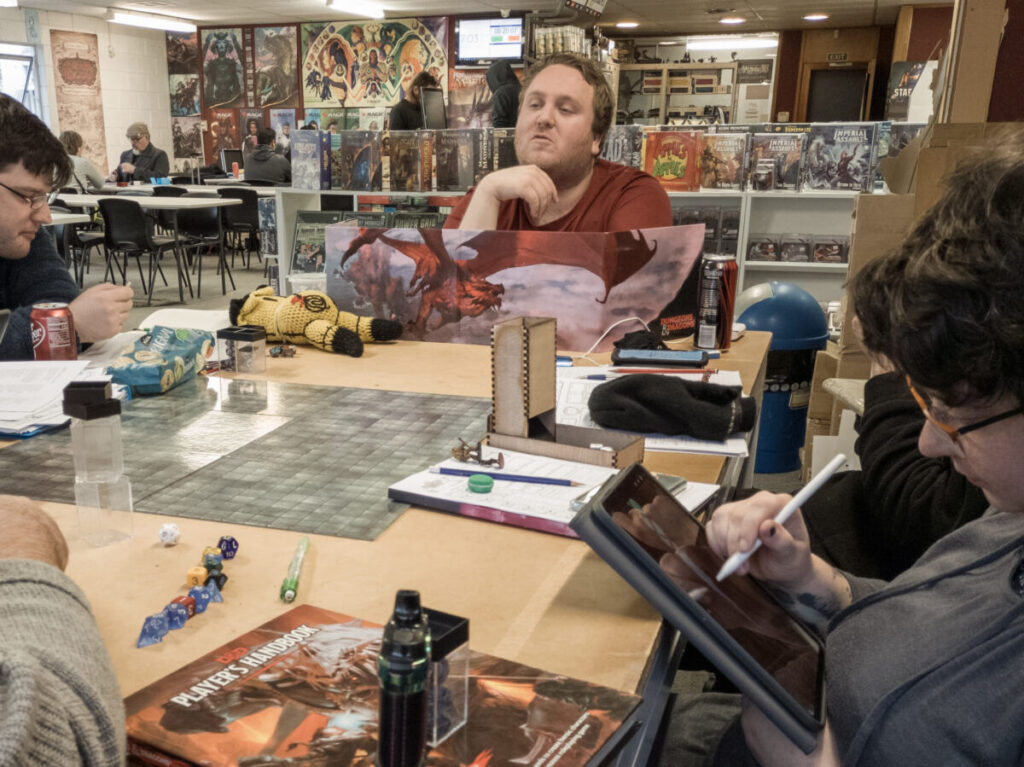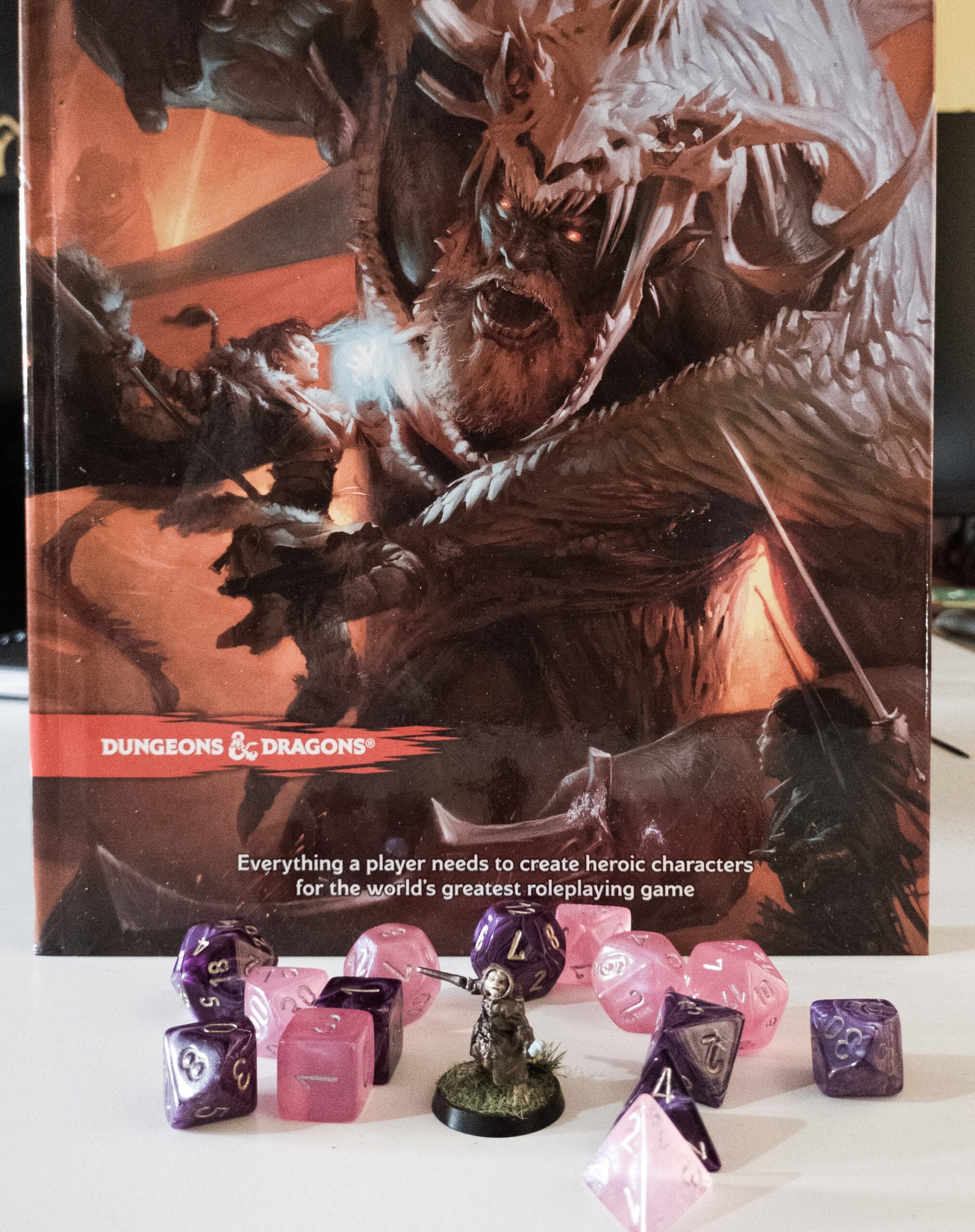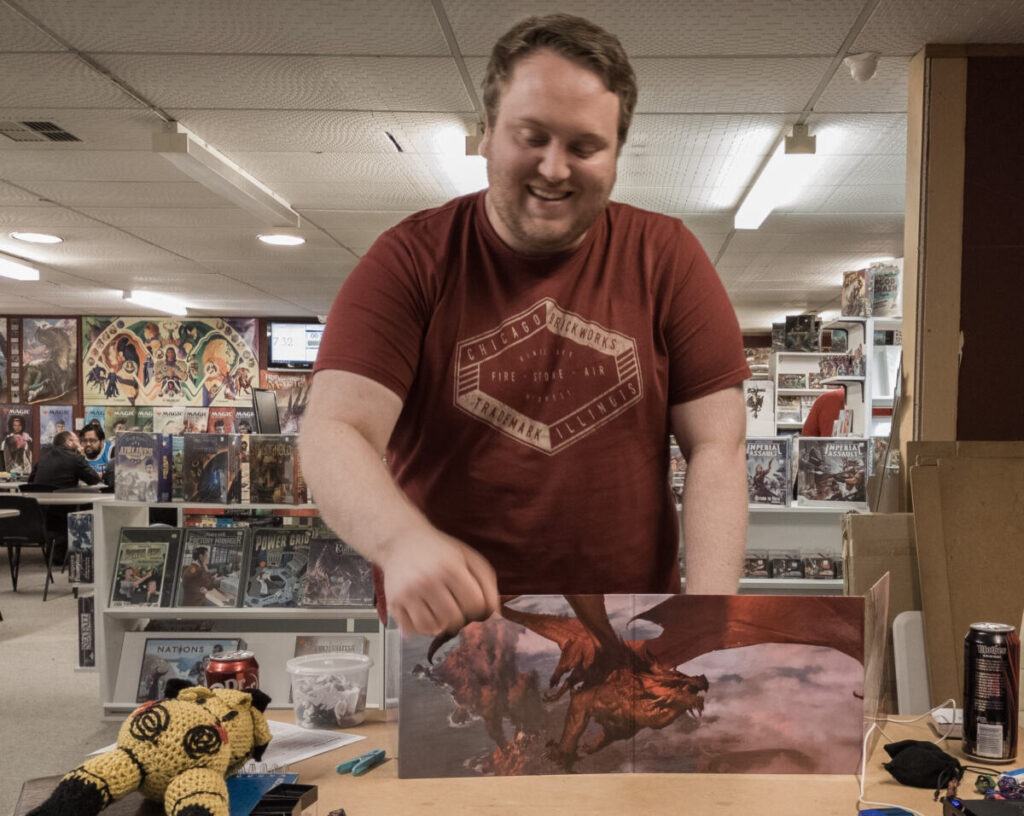Escaping the Mundanity of Life
Step into the fantasy world of sword fights and dragon slaying to let your mind escape reality.

There are plenty of ways to escape the mundanity of day-to-day life. I’ve recently become attached to my PlayStation, coming home from a day’s worth of pretending to fit into society, to kill evil space capitalists. However, while the worlds created by my PlayStation are vibrant and wonderful, I’m still constricted by the game developers’ imagination.
I have to follow their story lines, play with their characters, and repeat the same part over and over because I keep getting shot.The same has been said of the fantasy genre of all media for a while now. While fans of Tolkien are able to have the words on the pages become worlds in their minds, once fans are within these fantasy worlds they want to create stories of their own.
Thankfully there was a group of friends from Mid-Western America in the mid-70s who wanted to do just that, which led them to create the table-top role-playing game, Dungeons and Dragons (DnD).
At first glance the game can seem complex and confusing.The game immerses players into the world of fantasy determined by dice rolls and told in a group setting. One player known as the Dungeon Master (DM) guides the other players through the narrative of the story while they make decisions for their characters.
Players create their own characters by choosing a race (such as human or elf) and a class (such as Barbarian or Monk). Each race and class has their own traits and characteristics which manage what players can do with their characters. Once players have created their characters the DM leads them on a journey by engaging with the characters within the narrative.

The game uses 6 different size dice per person, one of which has 20 sides. The rolls of the dice are paired with other game mechanics which then determine the outcomes of players’ decisions within the narrative of the game.
These restrictions, while seemingly complicated, stop a game of DnD turning into sheer make-believe. The game-play becomes incessantly less complicated as a game will follow a basic three-part pattern: the DM describes the environment; the players describe what they want to do; then the DM narrates the results of the players’ actions. It’s this pattern that keeps both the game-play and narrative of the story moving along.
While the players of DnD create sensational worlds, the game has also been caught amongst sensational controversy within the real world. As the game gained popularity in the mid-80s it was swept up within the Satanic Panic from the time. The game received false allegations of promoting Satanism, witchcraft, and murder. Over 40 years later and a community has flourished while the controversy has been all but forgotten. DnD players have managed to escape from that aforementioned mundanity all through their imagination and a set of dice.

Matt’s Job is to Create Worlds.
To get a better understanding of Dungeons and Dragons (DnD) I talked to Dungeon Master (DM) Matt Frandi while he was setting up at Gaming DNA on Anglesea Street in Hamilton.
Before Matt started playing DnD his friends would describe their games and the adventures their characters went on and it always sounded like something Matt would enjoy. “It sounded like an imaginative Skyrim.” It wasn’t until Matt moved to Hamilton that he was able to find the time to play. Now he’s been playing for three years and plays at least four times a week.
As a DM it’s Matt’s job to create the world and guide the player on the journey. This can be hard when players’ actions can change the world Matt has created in a moment. That’s why instead of building a straight story line, Matt builds multiple different plot points that can be used as needed, similar to a Goose Bumps-Choose Your Own scare novel.
“No matter how long you’ve been playing, your imagination is your best tool to take into a game. When you play a game of DnD, you’re creating everything. As a player, you’re not only creating your character, you’re creating their backstory, making decisions for your character and deciding their actions while also being flexible, knowing that anything can change within the story at any moment.”
It’s this use of unlimited imagination that can lead to stories more memorable than best-selling novels. This is clear when Matt says one of the most memorable tales from playing the game left him in tears.
“My party and I were battling in a forest when one of the creatures we were fighting exploded, leaving my character bleeding out in a tree. Thankfully another character was able to send their wolf companion, River, into the forest to cast a healing spell on my character. While my character was able to catch River before they fell into the flames, River had already taken too much health and so died in my character’s arms.
“What made that such a tear-jerker was the way the DM told the story. He had a way of making sure every aspect of the game was so well crafted that when he told the story players could picture every detail in their heads.”
Matt’s best advice for new players is to jump straight in and learn while playing. Gaming DNA host DnD games all week long and the friendly staff will be able to let you know when games are available to join.




